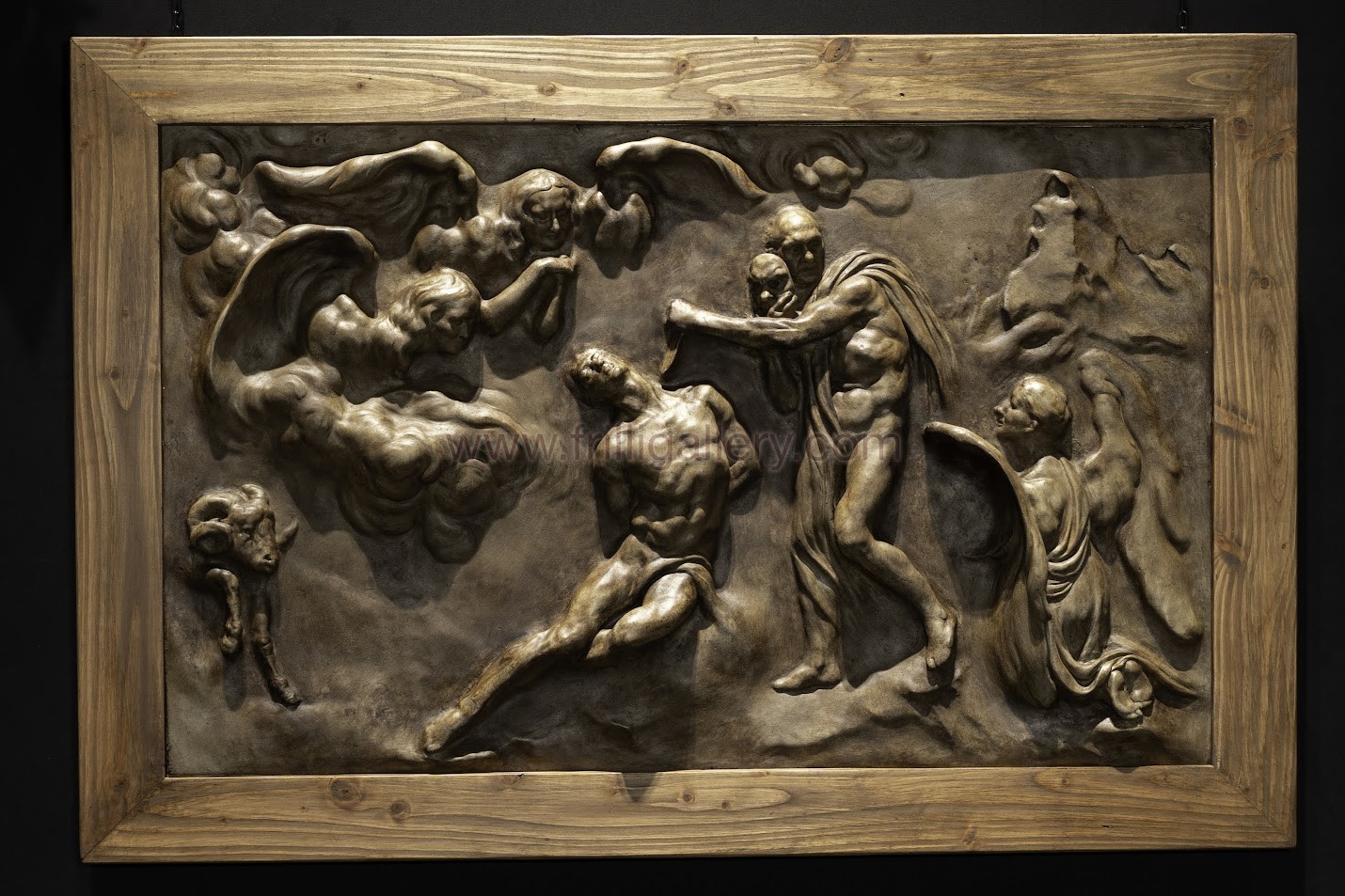


This piece draws on Søren Kierkegaard’s Fear and Trembling, in which he asserts that faith is not forged with certainty, but in the capacity to sit with fear, doubt, and the incomprehensible. Abraham, remembered as the father of faith, is occupied with the “shudder of thought,” his willingness to violate ethical principles (i.e. that of killing his son) is justified by his faith, as neither his act nor God’s command can be understood through ethical terms, but through faith.
Written under the pseudonym Johannes de Silentio, the text opens with four poetic retellings, or attunements, each revealing a different facet of Abraham’s inner life. In the first, Abraham does not conceal his purpose from Isaac. Though gentle and fatherly, he cannot be understood by his son, who clings to his knees. On Mount Moriah, Abraham’s face changes to one of a wild maniacal executioner. In his anguish, Isaac cries out to God: “if I have no father on earth, then be Thou my father!” Under his breath, Abraham murmers, “Lord in heaven I thank Thee; it is after all better that he believe I am a monster than that he lose faith in Thee,” depicted here as Abraham wearing a literal mask, showing his outer expression and inner psychological struggle
Seldom do we affirm the profound isolating spiritual struggle necessary to maintain one’s faith, the same struggle Abraham endured—an inner battle accompanied by fear and trembling, echoing Philippines 2:12. For Kierkegaard, this event demonstrates a teleological suspension of the ethical, a higher law at work—one that supersedes personal attachments and human reasoning. In this tension—between love, obedience, and the incomprehensible—the artist sought to render the silent, trembling depth of faith visible.
To request info for this item please use the following form